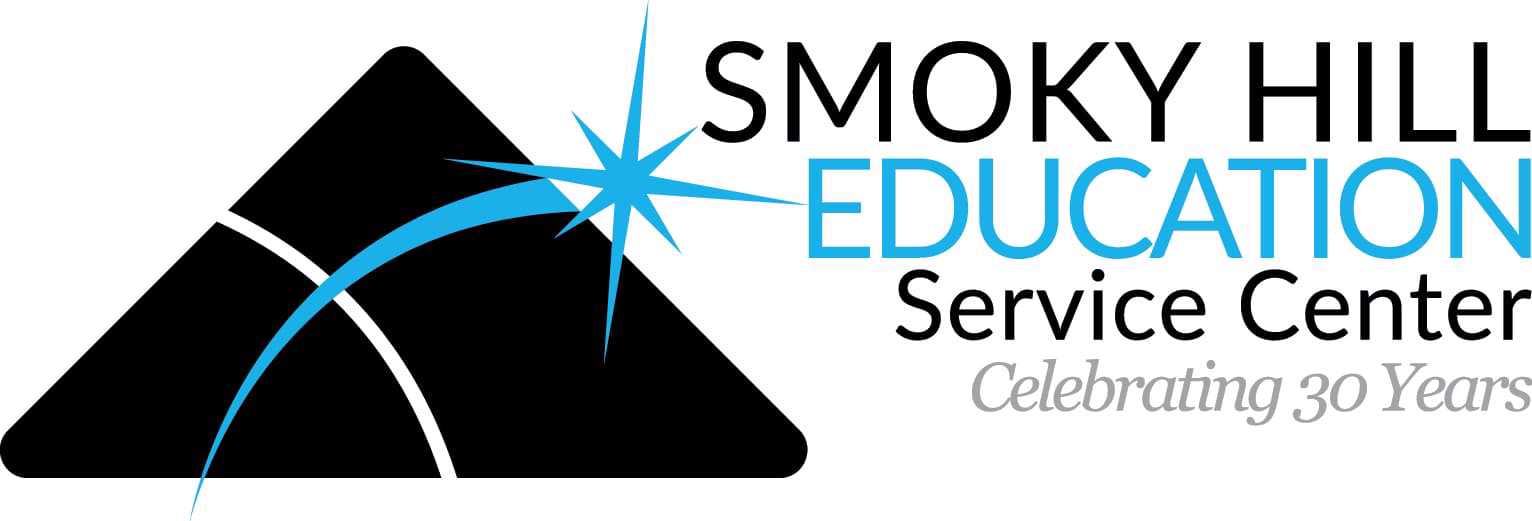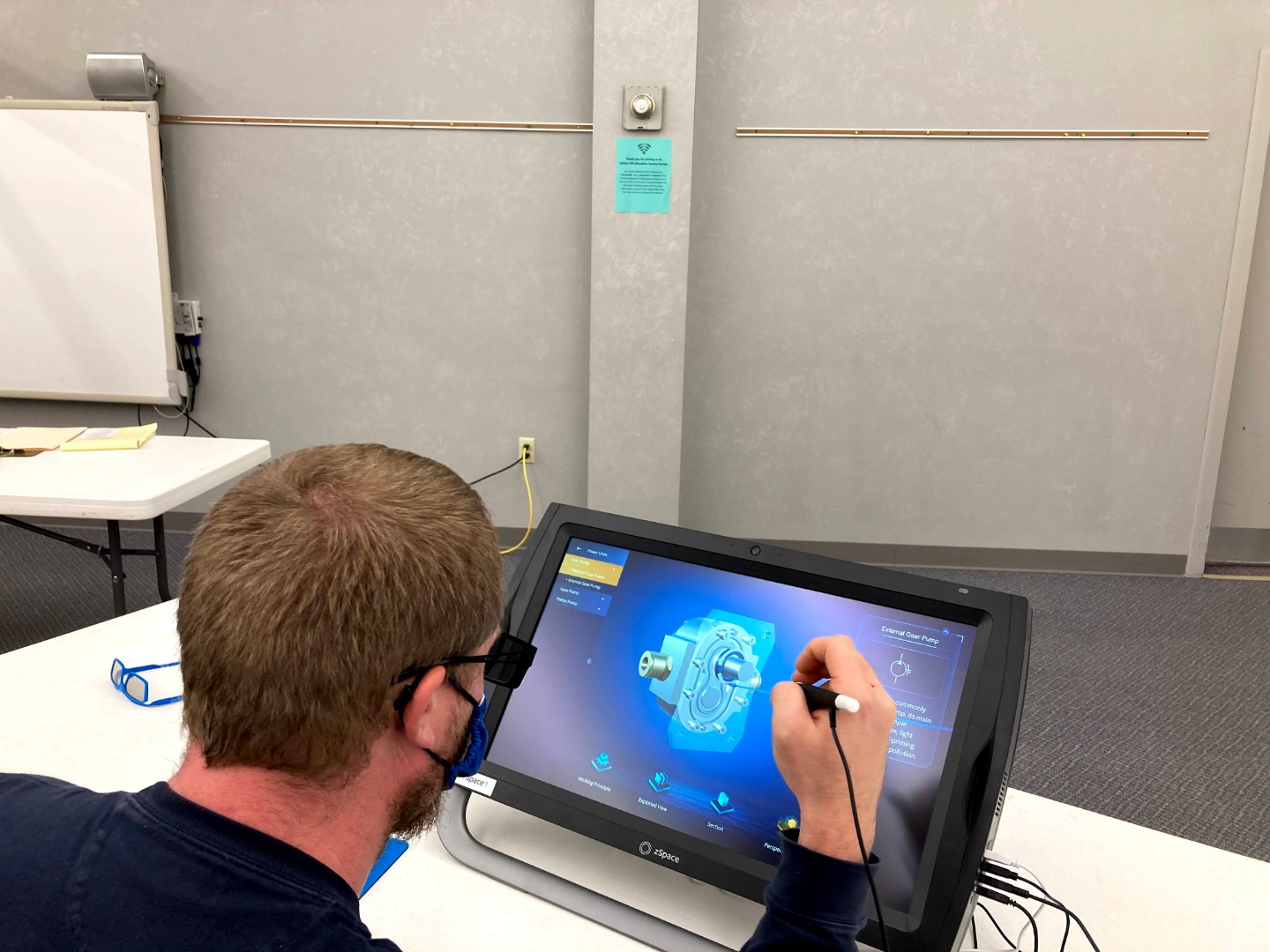"SHESC Messenger": End of June 2021

End of June 2021
|
New Resources Available for Smoky Hill Perkins Consortium Members, Including zSpace Units, Vernier Wind Tunnel All high schools in the Smoky Hill Perkins Consortium now have access to two zSpace all-in-one virtual reality/augmented reality units and a Vernier wind tunnel. Both zSpace units are equipped with software specific to the Health Science; Manufacturing; and Power, Structural, and Technical Systems Pathways - providing unique learning experiences for Career and Technical Education students. “Human Anatomy Atlas” by Visible Body allows students in Anatomy and Physiology classes to explore human body systems, anatomical structures, and musculoskeletal animations from all sides in 3D. “Advanced Manufacturing” by Fun2 has software featuring hydraulics, mechanical systems, and pneumatics, enabling students to see different components as a whole and disassembled to see internal structure and how parts work. “Wave NG Welding” by Nimbus provides an opportunity for students to learn and practice two common welding techniques using a handheld welding simulator. Virtual Reality and Augmented Reality have also been shown to be a very effective tool when used by students with special needs, allowing them to participate safely in CTE courses. A unit will be housed at each of our offices in Salina and Hays for a two-week check-out. AJ Simon, Industrial Arts teacher at Wakefield High School, trained on the zSpace units and used them in his classroom for several weeks. Once the word was out about the units, he had students wanting to come in and try the Human Anatomy Atlas, even though it wasn’t part of his class. After using the units, he said the manufacturing software would be useful in an Ag Mechanics class, allowing students to see how the parts work. The welding software would be beneficial to small schools wanting to introduce students to welding but that don’t have welding equipment. The Vernier wind tunnel is the same model used at KidWind competitions, providing Smoky Hill Perkins districts access to the wind tunnel for testing before competition. It is also available for schools that are not competing but would like to incorporate wind energy as part of their curriculum. It will be housed at the Hays office and can be checked out for two weeks at a time. To reserve a zSpace unit or the wind tunnel at the Hays office, contact April Klaus at aklaus@smokyhill.org or 785-621-4414. To reserve a zSpace unit at the Salina office, contact Cassie Edgerton at cedgerton@smokyhill.org or 785-825-9185. |
|
Featured PD: Upcoming Workshops with Math Focus
Math education is an important and critical topic for many schools.
Melissa Fast, SHESC Consultant specializing in workshops and resources for math education, is making many opportunities available this summer!
Register and read more details, at go.smokyhill.org/math. |
|
KSDE Presentations Upcoming as Summer Continues Smoky Hill Education Service Center - along with other service centers in the state of Kansas - is partnering with KSDE in a series of presentations on essential topics for Kansas educators.
To register for any of the in-person sessions listed below visit go.smokyhill.org/KSDE-summer-2021.
KSDE Presentation: Computer Science Education Implementation and Advanced Placement June 25 or July 8 This session, led by a Kansas Computer Science Education Program Consultant, as well as officials from The College Board, is intended to answer questions from district and building leaders, as well as teachers’ questions, related to computer science education policy. It will especially focus on how the policy relates to advanced placement (AP) course offerings and how they can be implemented in districts across Kansas. Successful Kansas high school cases will be acknowledged and described, and the session will be open to questions related to computer science and STEM education.
KSDE Presentation: Teacher Training for the HGSS Classroom-Based State Assessment for 2021-2022 July 19 (morning or afternoon session options available) Join this KSDE presentation to learn about the HGSS Classroom-Based State Assessment. Kansas is testing HGSS (History, Government, and Social Studies) in grades 4, 7, and 11 beginning with the 2021-2022 school year. If you are a teacher in any of these grades, it is important that you understand how to plan your classroom assessment and assess your students's work using the state rubric. Attend one of these sessions to understand the inquiry-based state assessment and then be prepared to report your student scores for the 2021-2022 school year. These rubrics can be used at all grade levels and in every social studies classroom throughout grades K-12. All grades will eventually be tested!
KSDE Presentation: Visible Sense-Making through the Science Standards July 22 During this session, participants will examine the Kansas State Science Standards and practice crafting a story of student learning to guide students in a sense-making process centered around anchoring phenomena. This session will include strategies for tracking students' understanding, as well as techniques for how to ensure class discussion is equitable. Participants will want to bring a unit to focus on and a computer, if possible.
KSDE Presentation: Science, Stories and Student-Driven Investigations (K-6) July 23 Boom went the drum, squeak went the ball....what made that noise? Let's investigate them all! During this session, participants will learn how to deconstruct our science standards to better tell the story of student learning through science and engineering practices. The session will include strategies that may be used in the classroom - and beyond - to help students better make sense of the world around them. Participants will want to bring a unit of focus and a computer, if possible.
Register at go.smokyhill.org/KSDE-summer-2021.
|
|
Volume Purchasing: New Catalogs for Cafeteria Supply, Lumber Expected July 1 Twice a year, the Smoky Hill Education Service Center Volume Purchasing Program solicits new bids for the cafeteria supply and lumber catalogs to secure the most current and competitive prices possible. The new catalogs are scheduled to go live on July 1! To ensure that you receive updated printable PDF catalogs as soon as they are available, contact Adam Pracht at vp@smokyhill.org. |
|
Preventing Ransomware at Schools With high-profile ransomware attacks hitting institutions such as meat supplier JBS and oil company Colonial Pipeline, these sort of destructive hacker attacks are receiving more attention than ever. In 2020, ransomware cost businesses $20 billion globally - 75% higher than in 2019. What's less known is that even educational institutions are at an increased risk of these attacks, according to a warning this spring from the FBI. Ransomware attacks use a software virus - delivered through websites, email, or other online methods - that once they have infiltrated a system make important information and records unavailable through encryption. The hackers then hold that encrypted information "hostage" until the victims of the attack pay a large ransom to recover the information with a "key" to decrypt and recover the information. In the last year, here are a few examples of how this costly threat has started to reveal itself in the context of education:
The situation is getting worse. Cyber threat intelligence provider Check Point Research reported in May 2021 that ransomware hackers have now expanded to a "triple extortion" tactic. This means hackers are now not only trying to extort ransoms from the hacked institution by holding data hostage and threatening to release private information publicly, but now also contacting customers, clients, and other contacts whose information has been compromised and trying to extort them for ransom money and threatening to post their personal information publicly unless the individual victim pays ransom. In the context of education, that could mean school employees, parents, and even students being extorted to keep their information private under this new "triple extortion." To help prevent getting hit by a ransomware attack, the FBI recommends considering the following mitigations (quoted directly from FBI, Cyber Division, "Flash" alert number CP-000-142-MW on March 16, 2021):
If you or your organization are already the victim of a ransomware attack, take the following steps:
|
|
What COVID-19 Catalog Items Would You Like Added? In August 2020, Smoky Hill Education Service Center Volume Purchasing added a special COVID-19 Prevention Catalog to help meet the unique and specific needs of schools in working to slow the spread of the virus. While the situation has improved with the development and distribution of COVID-19 vaccines, the need for items such as personal protective equipment, disinfectants, and high-quality air filters has not gone away and will likely still be needed by the end of the contract period in mid-August. In addition to requesting the same items as last year, it's possible that new needs have also arisen since last year. We want to avoid overlooking critical products to make available through the program, so please let us know from your perspective "on the ground." What are the products that you want to see offered to help prevent COVID-19 in the coming year that we are currently not making available? Email Adam Pracht, Volume Purchasing Coordinator, at vp@smokyhill.org with your requests. |
|
Register Today for Rule 10 Coaching Clinic Attention, coaches! The annual KSHSAA Rule 10 Coaching Clinic is coming soon on August 7, covering important topics for high school coaches. Registration deadline is July 31 at go.smokyhill.org/rule-10. Two sessions will cover these critical topics: Coaching Principles, 8:00 a.m. - 12:00 p.m. The ASEP Coaching Principles class is for rookie (Rule 10) to veteran coaches who are still ready and willing to learn how to improve their coaching and their programs. The heart of the class is “Athletes First, Winning Second.” The topics will be covered by video and class discussion and later completed by the online instruction on the students' own time. Sports First Aid, 1:00 - 5:00 p.m. The Sports First Aid course is a practical class that focuses on the coach being the first responder. Many practical first aid practices will be shown that will help coaches feel confident to care for athletes. Topics covered are: The Coach’s Role on the Health Care Team; Types of Injuries; Emergency Action Steps; Physical Assessment and Providing Immediate First Aid; Moving Injured Athletes; Head, Spine, and Neck Injuries; and Musculoskeletal Injuries. |




